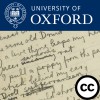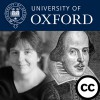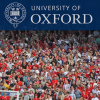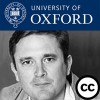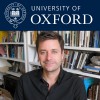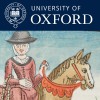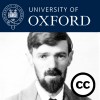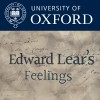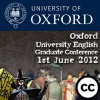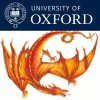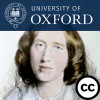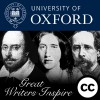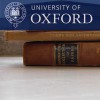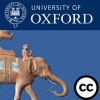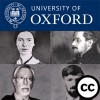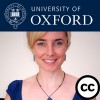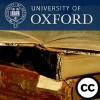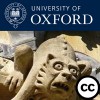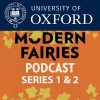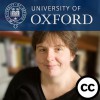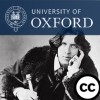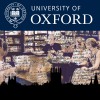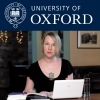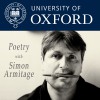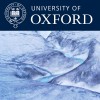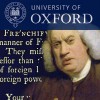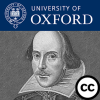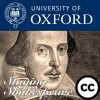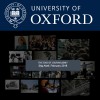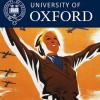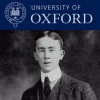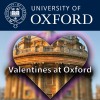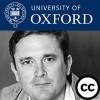Faculty of English Language and Literature

Relevant Links
The Faculty of English Language and Literature is by far the largest English Department in the UK, with over 75 permanent postholders, a further 70 Faculty members, 900 undergraduates and 300 postgraduates. The Faculty has a very distinguished research and teaching record, covering all periods of English Literature.
Oxford’s English Faculty is one of the most illustrious Schools of English in the world. Established in 1894, it has numbered among its members some of the most important critics and scholars in the field, including J.R.R. Tolkien, C.S. Lewis, Edmund Blunden, Nevill Coghill, Helen Gardner, Richard Ellmann, Terry Eagleton, and many others. We are now home to nearly eighty Professors, Readers, and Lecturers, with about the same number again of Tutors and Research Fellows based in Colleges. At any one time, there are roughly a thousand students studying within the Faculty at undergraduate level, and another three hundred at graduate level in the largest English graduate school in the country.
Traditionally teaching and research in the Faculty has covered the entire history of literature in English from the Anglo-Saxon period to the present day, along with language studies. More recent growth areas include world literature and film studies.
Series associated with Faculty of English Language and Literature
| # | Episode Title | Description | People | Date | |
|---|---|---|---|---|---|
| 178 | Creative Commons | Julian Thompson on Sir Walter Scott | Dr Julian Thompson introduces 'the least read great writer in our literature'. He describes the popularly of Walter Scott in his own time and suggests some highlights of the 'living Scots' of his fiction. | Julian Thompson | 01 Aug 2012 |
| 177 | Creative Commons | Shakespeare and Voice | Linda Gates, Professor of Voice at Northwestern University (USA) discusses how Shakespeare's poetry and plays lend themselves to vocal performance by discussing how breath can be used to 'punctuate the thought'. | Linda Gates | 01 Aug 2012 |
| 176 | Creative Commons | Shakespeare and Voice | Linda Gates, Professor of Voice at Northwestern University (USA) discusses how Shakespeare's poetry and plays lend themselves to vocal performance by discussing how breath can be used to 'punctuate the thought'. | Linda Gates | 01 Aug 2012 |
| 175 | Creative Commons | What is a Classic? English Graduate Conference 2012 Panel Debate, Talk 3 | Baroness Helena Kennedy QC, draws on her experience as a trustee of the Booker Prize and as a judge for many other literary prizes to offer a response to the question, 'What is a Classic?'. | Helena Kennedy | 19 Jul 2012 |
| 174 | Creative Commons | What is a Classic? English Graduate Conference 2012 Panel Debate, Talk 3 | Baroness Helena Kennedy QC, draws on her experience as a trustee of the Booker Prize and as a judge for many other literary prizes to offer a response to the question, 'What is a Classic?'. | Helena Kennedy | 19 Jul 2012 |
| 173 | Creative Commons | What is a Classic? English Graduate Conference 2012 Panel Debate, Talk 2 | Judith Luna, the Senior Commissioning Editor at Oxford World's Classics, draws on her practical involvement in re-launching the Oxford World's Classics series in 2008 to give a publisher's take on the question, 'What is a Classic?'. | Judith Luna | 19 Jul 2012 |
| 172 | Creative Commons | What is a Classic? English Graduate Conference 2012 Panel Debate, Talk 2 | Judith Luna, the Senior Commissioning Editor at Oxford World's Classics, draws on her practical involvement in re-launching the Oxford World's Classics series in 2008 to give a publisher's take on the question, 'What is a Classic?'. | Judith Luna | 19 Jul 2012 |
| 171 | Creative Commons | What is a Classic? English Graduate Conference 2012 Panel Debate, Talk 1 | Dr Ankhi Mukherjee, Wadham college, Oxford, speaks to the question 'What is a Classic?' by examining the residual influence of the Eurocentric literary canon in the age of world literature and emergent formations of canons and classics. | Ankhi Mukherjee | 19 Jul 2012 |
| 170 | Creative Commons | What is a Classic? English Graduate Conference 2012 Panel Debate, Talk 1 | Dr Ankhi Mukherjee, Wadham college, Oxford, speaks to the question 'What is a Classic?' by examining the residual influence of the Eurocentric literary canon in the age of world literature and emergent formations of canons and classics. | Ankhi Mukherjee | 19 Jul 2012 |
| 169 | Creative Commons | Shackled by Language: The Representation and Self-Representation of English-Speaking Black Voices in Black Atlantic Writing | Cecilia Bennett considers the use of the English language in black Atlantic narratives. | Cecilia Bennett | 18 Jul 2012 |
| 168 | Creative Commons | Rewriting Jane Eyre: The Avenging 'Angel in the House' in Michael Faber's The Crimson Petal and the White | Erin Nyborg draws parallels between Michael Faber's 2002 novel The Crimson Petal and the White and Charlotte Brontë's Jane Eyre. | Erin Nyborg | 18 Jul 2012 |
| 167 | Creative Commons | Olive Schreiner | Dominic Davies talks about Olive Schreiner, the postcolonial South African author, and how her work, The Story of the African Farm, engages with the critical question of European hegemony in literary understanding and expectations of literary works. | Dominic Davies | 17 Jul 2012 |
| 166 | Creative Commons | 'Some exquisitely-dressed stage favourite': Shakespeare and the suffragettes | In this talk, Sophie Duncan examines suffragists' interactions with Shakespeare and his works, as performers, directors, consumers and critics. | Sophie Duncan | 17 Jul 2012 |
| 165 | Creative Commons | A Discussion of Emily Dickinson's 'I started early, took my dog'. | Dr Sally Bayley presents an illuminating reading of Emily Dickinson's 'I started early, took my dog'. In her reading, she seeks out allusions to Shakespearean plays including Hamlet and The Merchant of Venice. She then answers questions about the poem. | Sally Bayley | 16 Jul 2012 |
| 164 | Creative Commons | The Romance of the Middle Ages | Dr Nicholas Perkins talks about how romance functions as a genre in the middle ages, especially about how gifts and tokens were exchanged as signs of fidelity, specifically in Sir Orfeo, Sir Gawain, and King Horn. | Nicholas Perkins | 21 Jun 2012 |
| 163 | Creative Commons | Dickens's Points of View | Professor Jon Mee, University of Warwick, discusses how Dickens's fiction can be considered 'cinematic' by drawing attention to the shifting points of view in Oliver Twist, Our Mutual Friend, and other novels. | Jon Mee | 14 Jun 2012 |
| 162 | Creative Commons | Jane Austen's Manuscripts Explored | Professor Kathyrn Sutherland from the University of Oxford talks around the manuscripts of Jane Austen, what we can learn from them about her family life but also her writing style and techniques. | Kathryn Sutherland | 08 Jun 2012 |
| 161 | Creative Commons | The Watsons: Jane Austen Practising | Professor Kathryn Sutherland from the University of Oxford talks about some of Jane Austen's manuscripts from the novel "The Watsons" and what we can learn about her from these. | Kathryn Sutherland | 08 Jun 2012 |
| 160 | Creative Commons | Great Writers Inspire- An Introduction to the Project | A short introductory video to the "Great Writers Inspire project. | Joshua Carr | 23 May 2012 |
| 159 | Creative Commons | Literature and Form 4: What is "Comparative Literature"? | Dr Catherine Brown gives the fourth and final lecture in the Literature and Form lecture series. With a philosophical discussion on what Comparative Literature is and how we can study 'literature in comparison'. | Catherine Brown | 21 May 2012 |
| 158 | Creative Commons | Literature and Form 3: Multiple Plotting | Dr Catherine Brown gives the third lecture in the Literature and Form lecture series. Including the differing ways writers plot their work; from multi-plotted works like Ulysses (Joyce) to double plotted works like Daniel Deronda (George Eliot). | Catherine Brown | 21 May 2012 |
| 157 | Creative Commons | Literature and Form 2: Chapters | Dr. Catherine Brown offers a series of talks introducing different writing forms and their use in great novels: In the second lecture, Brown talks about the ways in which writers choose to break up their works into chapters, parts, and volumes. | Catherine Brown | 21 May 2012 |
| 156 | Creative Commons | Literature and Form 1: Unreliable Narrators | Dr. Catherine Brown offers a series introducing different writing forms and their use in great novels: In the first lecture, Brown discusses the use of the unreliable narrator, particularly in Nabokov's Lolita and McEwan's Atonement. | Catherine Brown | 21 May 2012 |
| 155 | Creative Commons | What is a Great Writer? An academic panel discusses the question. | In this panel discussion from the Great Writers Inspire Engage Event workshop, Dr Seamus Perry, Dr Margaret Kean, Professor Peter McDonald and Dr Ankhi Mukherjee discuss what we mean when we talk about greatness in writing. | Seamus Perry, Margaret Kean, Peter McDonald, Ankhi Mukherjee | 15 May 2012 |
| 154 | Creative Commons | Julian Thompson on Wilkie Collins | Dr. Julian Thompson considers how Wilkie Collins's fiction was pioneering across a variety of genres, including detective fiction and gothic thrillers. | Julian Thompson | 15 May 2012 |
| 153 | Creative Commons | Chaucer | Professor Daniel Wakelin discusses the work of Chaucer and explains how he was one of the first to use everyday spoken English as a literary language in the 14th Century. | Daniel Wakelin | 17 Apr 2012 |
| 152 | Creative Commons | Ezra Pound | Dr Rebecca Beasley explains why we should read Pound, someone she considers as the central figure in early 20th Century poetry movements. | Rebecca Beasley | 10 Apr 2012 |
| 151 | Creative Commons | Mary Leapor | Dr Jennifer Batt talks about Mary Leapor, an 18th Century kitchen maid who wrote accomplished verses and won accolades from literary society. | Jennifer Batt | 27 Mar 2012 |
| 150 | Creative Commons | DH Lawrence 7. Reception History | Catherine Brown gives the Seventh and final lecture in the DH Lawrence series. | Catherine Brown | 19 Mar 2012 |
| 149 | Creative Commons | DH Lawrence 6. Birds, Beasts and Children | Catherine Brown gives the sixth lecture in the DH Lawrence series. | Catherine Brown | 19 Mar 2012 |
| 148 | Creative Commons | John Milton | Dr Anna Beer shares a few short extracts of Milton's poem Lycidas and discusses what they show about Milton's very special qualities as a writer. | Anna Beer | 15 Mar 2012 |
| 147 | Creative Commons | The Lure of the East: the Oriental and Philosophical Tale in Eighteenth-Century England | Professor Ros Ballaster discusses the objectives of oriental tales published in the second half of the 18th Century which use the sheer power of storytelling to conjure up alternative worlds. | Ros Ballaster | 13 Mar 2012 |
| 146 | Creative Commons | Only Collect: An Introduction to the World of the Poetic Miscellany | Dr Abigail Williams, Director of the Digital Miscellanies Index, explains how these popular collections of poetry designed to suit contemporary tastes were used in the 18th Century. | Abigail Williams | 09 Mar 2012 |
| 145 | Creative Commons | Why Dickens? | Dr Robert Douglas-Fairhurst talks of Dickens' life and influences and why these have made his works so popular. | Robert Douglas-Fairhurst | 02 Mar 2012 |
| 144 | Creative Commons | DH Lawrence 5. The Alps | Catherine Brown gives the fifth lecture in the DH Lawrence series. | Catherine Brown | 28 Feb 2012 |
| 143 | Creative Commons | DH Lawrence 4. The World at Large | Catherine Brown gives the fourth lecture in the DH Lawrence series. | Catherine Brown | 28 Feb 2012 |
| 142 | Creative Commons | DH Lawrence 3. Christianity | Catherine Brown gives the third lecture in the DH Lawrence series. | Catherine Brown | 28 Feb 2012 |
| 141 | Creative Commons | The Tragedie Of King Lear. | ePub version of text THE TRAGEDIE OF KING LEAR. / Shakespeare, William, 1564-1616. | William Shakespeare | 22 Feb 2012 |
| 140 | Creative Commons | King Lear | Showing how generations of critics - and Shakespeare himself - have rewritten the ending of King Lear, this sixteenth Approaching Shakespeare lecture engages with the question of tragedy and why it gives pleasure. | Emma Smith | 22 Feb 2012 |
| 139 | Creative Commons | DH Lawrence 2. Humour | Catherine Brown gives the second lecture in the DH Lawrence series. | Catherine Brown | 15 Feb 2012 |
| 138 | Creative Commons | DH Lawrence 1. Consciousness | Catherine Brown gives her first lecture in the D.H. Lawrence series. | Catherine Brown | 15 Feb 2012 |
| 137 | Creative Commons | Babbling a Dialect of France: Loanwords, French, and Johnson's Dictionary | Professor Mugglestone discusses the concept of loanwords in relationship to Samuel Johnson's Dictionary of the English Language. | Lynda Mugglestone | 13 Feb 2012 |
| 136 | Creative Commons | The life and death of King Iohn. | ePub version of text The life and death of King Iohn. / Shakespeare, William, 1564-1616. | William Shakespeare | 10 Feb 2012 |
| 135 | Creative Commons | King John | At the heart of King John is the death of his rival Arthur: this fifteenth lecture in the Approaching Shakespeare series looks at the ways history and legitimacy are complicated in this plotline. | Emma Smith | 10 Feb 2012 |
| 134 | Creative Commons | J.M. Coetzee | Professor Peter McDonald gives a talk on the work of South African Nobel Laureate, J.M. Coetzee. | Peter McDonald | 07 Feb 2012 |
| 133 | Creative Commons | Olive Schreiner | Professor Elleke Boehmer gives a talk on Olive Schreiner (1855-1920), the South African novelist, pioneering feminist, and anti-imperialist polemicist. | Elleke Boehmer | 07 Feb 2012 |
| 132 | Creative Commons | Katherine Mansfield and Rhythm Magazine | Dr Faith Binckes explains why modernist short story writer and critic Katherine Mansfield (1888-1923) is a great writer, highlighting her involvement with the 1911-1913 periodical Rhythm, edited by her second husband John Middleton Murry. | Faith Binckes | 07 Feb 2012 |
| 131 | Creative Commons | George Eliot - A Very Large Brain | Dr Catherine Brown gives a talk on George Eliot and her influences. | Catherine Brown | 07 Feb 2012 |
| 130 | Creative Commons | William Blake | Dr David Fallon introduces the poetry, painting, and engraving of William Blake, focusing on the imaginative and visionary aspects of Blake's work and his desire to break the publics 'mind-forg'd manacles'. | David Fallon | 07 Feb 2012 |
| 129 | Creative Commons | 18th Century Labouring Class Poetry | Dr Jennifer Batt gives a talk on Stephen Duck, one of the 18th Century labouring-class poets. | Jennifer Batt | 07 Feb 2012 |
| 128 | Creative Commons | Jonathan Swift and the Art of Undressing | Dr Abigail Williams gives a talk on Jonathan Swift and the Art of Undressing. | Abigail Williams | 07 Feb 2012 |
| 127 | Creative Commons | Beowulf | Dr Francis Leneghan gives a talk on Beowulf, one of the most important works in Anglo-Saxon literature. | Francis Leneghan | 07 Feb 2012 |
| 126 | Creative Commons | Shakespeare and the Stage | Professor Tiffany Stern gives a talk on William Shakespeare and how his plays were performed in Elizabethan England. | Tiffany Stern | 07 Feb 2012 |
| 125 | Creative Commons | Pericles, Prince of Tyre | Pericles has been on the margins of the Shakespearean canon: this fourteenth lecture in the Approaching Shakespeare series shows some of its self-conscious artistry and contemporary popularity. | Emma Smith | 01 Feb 2012 |
| 124 | Creative Commons | The Tragedy of Richard the Third: with the Landing of Earle Richmond, and the Battell at Bosworth Field. | ePub version of text The Tragedy of Richard the Third: with the Landing of Earle Richmond, and the Battell at Bosworth Field. / Shakespeare, William, 1564-1616. | William Shakespeare | 25 Jan 2012 |
| 123 | Creative Commons | Richard III | In this thirteenth lecture in the Approaching Shakespeare series the focus is on the inevitability of the ending of Richard III: does the play endorse Richmond's final victory? | Emma Smith | 25 Jan 2012 |
| 122 | Creative Commons | The Comedie of Errors. | ePub version of text The Comedie of Errors. / Shakespeare, William, 1564-1616. | William Shakespeare | 23 Jan 2012 |
| 121 | Creative Commons | The Comedy of Errors | Lecture 12 in the Approaching Shakespeare series asks how seriously we can take the farcical exploits of Comedy of Errors, drawing out the play's serious concerns with identity and selfhood. | Emma Smith | 23 Jan 2012 |
| 120 | Creative Commons | The Joys of Cricket | This podcast looks at cricket seen through eighteenth-century eyes, focussing on a poem by James Dance, called 'Cricket: An Heroic Poem.'. | Adam Rounce | 12 Dec 2011 |
| 119 | Creative Commons | George Eliot 3. Reception History | In this third and final podcast, Dr Catherine Brown discusses the popularity of George Eliot's work in the Victorian period, which led to her status as a sage and the steady accumulation of her wealth. | Catherine Brown | 05 Dec 2011 |
| 118 | Creative Commons | History of English Pronunciation | Do we really know what Chaucer's poetry sounded like? Professor Simon Horobin introduces evidence that gives us an insight into the history of English pronunciation and explores what it tells us about how and why changes in language take place. | Simon Horobin | 30 Nov 2011 |
| 117 | Creative Commons | The First Part of Henry the Fourth, with the Life and Death of Henry Sirnamed Hot-spvrre. | ePub version of text The First Part of Henry the Fourth, with the Life and Death of HENRY Sirnamed HOT-SPVRRE. / Shakespeare, William, 1564-1616. | William Shakespeare | 16 Nov 2011 |
| 116 | Creative Commons | Henry IV part 1 | Like generations of theatre-goers, this lecture concentrates on the (large) figure of Sir John Falstaff and investigates his role in Henry IV part 1. Lecture 11 in the Approaching Shakespeare series. | Emma Smith | 16 Nov 2011 |
| 115 | Creative Commons | George Eliot 2. Genre and Justice | The second lecture in the series on George Eliot considers how narrative justice operates in relation to the genres of comedy and tragedy, particularly in 'Adam Bede' and 'Daniel Deronda'. | Catherine Brown | 15 Nov 2011 |
| 114 | Creative Commons | The Tempest. | ePub version of text THE TEMPEST. / Shakespeare, William, 1564-1616. | William Shakespeare | 14 Nov 2011 |
| 113 | Creative Commons | The Tempest | That the character of Prospero is a Shakespearean self-portrait is a common reading of The Tempest: this tenth Approaching Shakespeare lecture asks whether that is a useful reading of the play. | Emma Smith | 14 Nov 2011 |
| 112 | Creative Commons | George Eliot 1. Intellect and Consciousness | In this lecture Dr Catherine Brown brings her discussion to focus primarily upon Eliot's atypical novella 'The Lifted Veil' and her novel 'Middlemarch'. | Catherine Brown | 10 Nov 2011 |
| 111 | Creative Commons | The Tragedie Of Anthonie, and Cleopatra. | ePub version of text THE TRAGEDIE OF Anthonie, and Cleopatra. / Shakespeare, William, 1564-1616. | William Shakespeare | 10 Nov 2011 |
| 110 | Creative Commons | Antony and Cleopatra | What kind of tragedy is this play, with its two central figures rather than a singular hero? The ninth lecture in the Approaching Shakespeare series tries to find out. | Emma Smith | 10 Nov 2011 |
| 109 | Creative Commons | Shakespeare and the Oxford English Dictionary (OED) | Professor Charlotte Brewer introduces the methodology behind the creation of the OED and how current activity to update the Dictionary may reveal new evidence about Shakespeare's impact on the English Language. | Charlotte Brewer | 08 Nov 2011 |
| 108 | Realism | Dr Catherine Brown, English Faculty, Oxford, gives a lecture exploring the nature of realism in verbal and visual art. | Catherine Brown | 08 Nov 2011 | |
| 107 | Creative Commons | The life and death of King Richard the Second. | ePub version of text The life and death of King Richard the Second. / Shakespeare, William, 1564-1616. | William Shakespeare | 01 Nov 2011 |
| 106 | Creative Commons | Richard II | Lecture eight in the Approaching Shakespeare series asks the question that structures Richard II: does the play suggest Henry Bolingbroke's overthrow of the king was justified? | Emma Smith | 01 Nov 2011 |
| 105 | Creative Commons | Walcott and Naipaul: History and Myth | Catherine Brown, Lecturer in English Literature, compares West Indian writers Derek Walcott and Vidiadhar Surajprasad Naipaul on their attitudes towards history and myth. | Catherine Brown | 26 Oct 2011 |
| 104 | Creative Commons | English and Gender | Professor Deborah Cameron explores some of the key theories surrounding the use of language by women and men. Are we really so different? | Deborah Cameron | 21 Oct 2011 |
| 103 | Creative Commons | Introduction to the MSt in English Language | Professor Deborah Cameron introduces the new Master's course in English Language offered by the University of Oxford. | Deborah Cameron | 21 Oct 2011 |
| 102 | Creative Commons | Twelfe Night, Or what you will. | ePub version of text Twelfe Night, Or what you will. / Shakespeare, William, 1564-1616. | William Shakespeare | 20 Oct 2011 |
| 101 | Creative Commons | Twelfth Night | The seventh Approaching Shakespeare lecture takes a minor character in Twelfth Night - Antonio - and uses his presence to open up questions of sexuality, desire and the nature of romantic comedy. | Emma Smith | 20 Oct 2011 |
| 100 | Creative Commons | The Lamentable Tragedy of Titus Andronicus. | ePub version of text The Lamentable Tragedy of Titus Andronicus / Shakespeare, William, 1564-1616. | William Shakespeare | 19 Oct 2011 |
| 99 | Creative Commons | Titus Andronicus | Focusing in detail on one particular scene, and on critical responses to it, this sixth Approaching Shakespeare lecture on Titus Andronicus deals with violence, rhetoric, and the nature of dramatic sensationalism. | Emma Smith | 19 Oct 2011 |
| 98 | Creative Commons | Poetry and Tobacco | This podcast looks at the relationship between tobacco and poetic inspiration, through some popular comic poems. | Abigail Williams, Laurence Williams, John Clargo | 03 Aug 2011 |
| 97 | Creative Commons | You are the Earth, You are the Sky; How one man become the dominant force in the British media's coverage of sport. Does that mean he controls sport itself? | Final lecture of the 2011 News International Professorship of Broadcast Media lecture series on Sport and Broadcast Media. | Matthew Engel | 19 Apr 2011 |
| 96 | Creative Commons | From Reith to wreath; The Great Days of Sport on BBC TV and how they ended | Matthew Engel, the journalist and sports writer and 2011 New International Professor of Broadcast Media gives his third lecture in the 2011 series entitled; Please, mister, can we have our ball back? Sport, the media, and the people. | Matthew Engel | 19 Apr 2011 |
| 95 | Creative Commons | It's the Cat's Whisker: How Sport and the Media developed together, from Mesopotamia to John Logie Baird | Matthew Engel, the journalist and sports writer and 2011 News International Broadcast Media Professor gives his second lecture in the 2011 series entitled 'Please, mister, can we have our ball back? Sport, the media, and the people. | Matthew Engel | 19 Apr 2011 |
| 94 | Creative Commons | Life and death? No, Much more Important than that; How Sport turned into Big Business and a Global Obsession | Matthew Engel, Journalist and Sports Writer and 2011 News International Visiting Professor of Broadcast Media gives the first of the 2011 series on Broadcast media, entitled; Please, mister, can we have our ball back? Sport, the media, and the people. | Matthew Engel | 19 Apr 2011 |
| 93 | Tolkien's Languages | These lectures cover an introduction to J R R Tolkien's career, show how medieval literature influenced his fiction, and consider the wider scheme Tolkien worked on linking his mythology to historical and other mythical events. | Elizabeth Solopova | 21 Mar 2011 | |
| 92 | Tolkien and Medieval Literature | These lectures cover an introduction to J R R Tolkien's career, show how medieval literature influenced his fiction, and consider the wider scheme Tolkien worked on linking his mythology to historical and other mythical events. | Elizabeth Solopova | 21 Mar 2011 | |
| 91 | J R R Tolkien 'Beyond the Shoreless Sea' | These lectures cover an introduction to J R R Tolkien's career, show how medieval literature influenced his fiction, and consider the wider scheme Tolkien worked on linking his mythology to historical and other mythical events. | Stuart Lee | 21 Mar 2011 | |
| 90 | J R R Tolkien: Medievalist and Mythmaker | These lectures cover an introduction to J R R Tolkien's career, show how medieval literature influenced his fiction, and consider the wider scheme Tolkien worked on linking his mythology to historical and other mythical events. | Stuart Lee | 21 Mar 2011 | |
| 89 | Creative Commons | Brought to Book: Book History and the Idea of Literature | Professor Paul Eggert, University of New South Wales, gives the 17th Annual D.F. McKenzie lecture on the subject of books and gives a case study of Henry Lawson, Australian author of Where the Billy Boils. | Paul Eggert | 09 Mar 2011 |
| 88 | Creative Commons | The Winters Tale. | ePub version of text The Winter's Tale. / Shakespeare, William, 1564-1616. | William Shakespeare | 09 Nov 2010 |
| 87 | Creative Commons | The Winter's Tale | How we can make sense of a play that veers from tragedy to comedy and stretches credulity in its conclusion? That's the topic for this fifth Approaching Shakespeare lecture on The Winter's Tale. | Emma Smith | 09 Nov 2010 |
| 86 | Creative Commons | The Tragedie Of Macbeth. | ePub version of text THE TRAGEDIE OF MACBETH. / Shakespeare, William, 1564-1616. | William Shakespeare | 02 Nov 2010 |
| 85 | Creative Commons | Macbeth | In this fourth Approaching Shakespeare lecture the question is one of agency: who or what makes happen the things that happen in Macbeth? | Emma Smith | 02 Nov 2010 |
| 84 | Creative Commons | Measvre, For Measure. | ePub version of text MEASVRE, For Measure. / Shakespeare, William, 1564-1616. | William Shakespeare | 27 Oct 2010 |
| 83 | Creative Commons | Measure for Measure | The third Approaching Shakespeare lecture, on Measure for Measure, focuses on the vexed question of this uncomic comedy's genre. | Emma Smith | 27 Oct 2010 |
| 82 | Creative Commons | The Tempest. | ePub version of text THE TEMPEST. / Shakespeare, William, 1564-1616. | William Shakespeare | 26 Oct 2010 |
| 81 | Creative Commons | The Two Gentlemen of Verona. | ePub version of text THE Two Gentlemen of Verona. / Shakespeare, William, 1564-1616. | William Shakespeare | 26 Oct 2010 |
| 80 | Creative Commons | The Merry Wiues of Windsor. | ePub version of text THE Merry Wiues of Windsor. / Shakespeare, William, 1564-1616. | William Shakespeare | 26 Oct 2010 |
| 79 | Creative Commons | Measvre, For Measure. | ePub version of text MEASVRE, For Measure. / Shakespeare, William, 1564-1616. | William Shakespeare | 26 Oct 2010 |
- ‹ previous
- 4 of 5
- next ›

